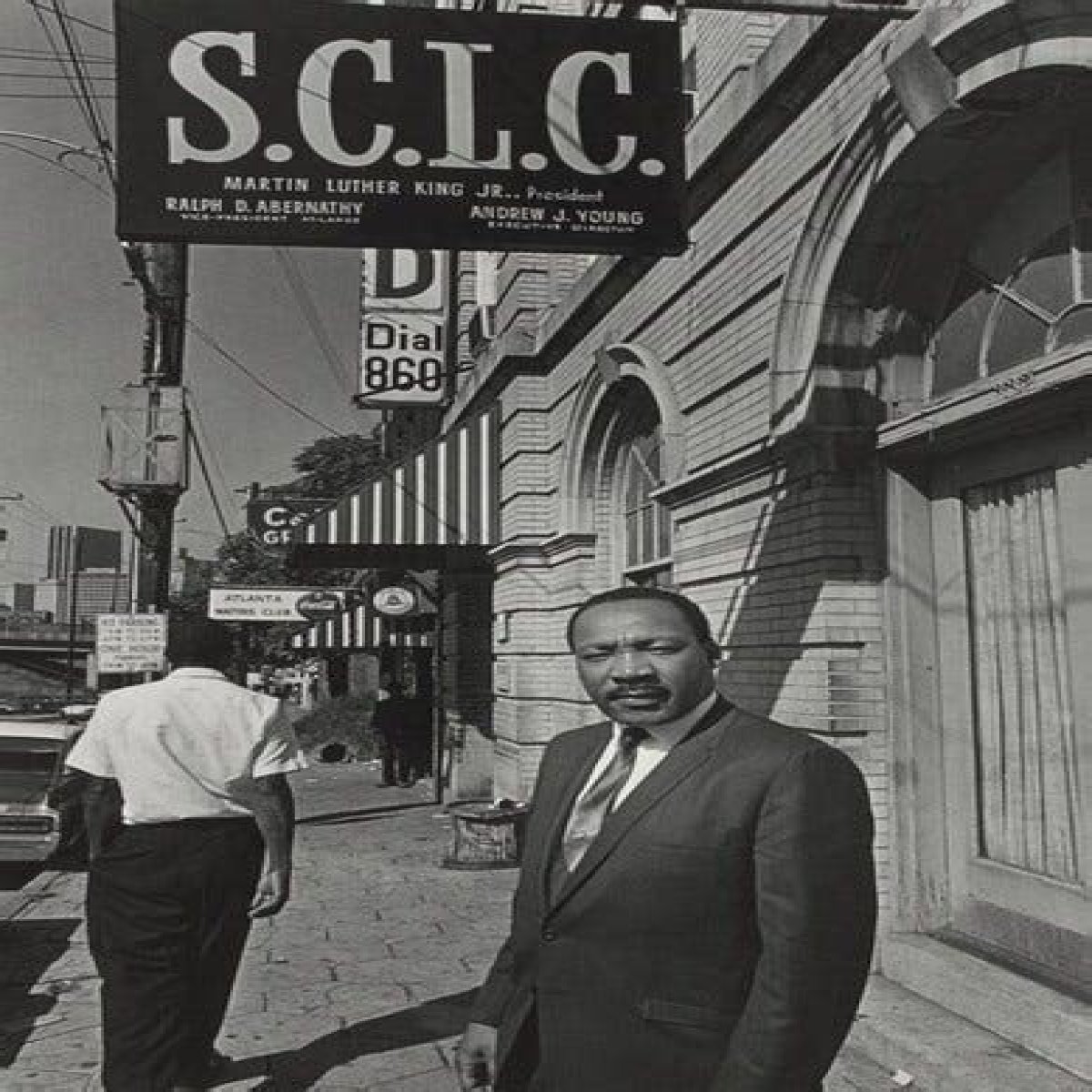The Southern Christian Leadership Conference (SCLC) played a pivotal role in the American Civil Rights Movement, and its formation was largely influenced by the visionary leadership of Dr. Martin Luther King Jr. (MLK). This organization was created to harness the moral authority and organizing power of black churches to conduct nonviolent protests for civil rights reform. The SCLC sought to end segregation and racial discrimination across the United States, and its impact resonates to this day. Understanding the history and significance of the MLK SCLC is essential for anyone interested in civil rights and social justice movements.
The SCLC was officially founded in 1957, following the success of the Montgomery Bus Boycott, which was a crucial event in the civil rights movement that showcased the power of nonviolent protest. At the helm of the SCLC was Dr. King, who served as its first president, guiding the organization with his unwavering commitment to justice and equality. His ability to inspire and mobilize people through powerful oratory and strategic activism became the hallmark of the SCLC's mission. The organization's influence was felt across the nation, as it coordinated numerous campaigns, marches, and demonstrations aimed at dismantling systemic racism.
As we delve deeper into the history of the MLK SCLC, it becomes evident that their achievements were not without challenges. The struggle for civil rights was met with fierce opposition, and many members faced violent reprisals for their activism. However, the SCLC's dedication to nonviolence and its focus on grassroots mobilization helped to build a robust movement that brought about significant legislative changes, including the Civil Rights Act of 1964 and the Voting Rights Act of 1965. The legacy of the SCLC and Dr. King continues to inspire current and future generations in the pursuit of equality and justice.
What Were the Key Achievements of the MLK SCLC?
The SCLC orchestrated several significant campaigns during the Civil Rights Movement. Here are some of the key achievements:
- Montgomery Bus Boycott (1955-1956): A pivotal moment that sparked the civil rights movement, leading to the formation of the SCLC.
- March on Washington (1963): This historic event, where Dr. King delivered his "I Have a Dream" speech, attracted over 250,000 participants advocating for civil and economic rights.
- Birmingham Campaign (1963): A strategic effort that highlighted racial segregation in the South, resulting in national awareness and support for civil rights.
- Selma to Montgomery March (1965): A series of marches that emphasized voting rights and ultimately led to the passing of the Voting Rights Act.
Who Were the Key Figures in the MLK SCLC?
While Dr. King was the face of the SCLC, he was joined by many other influential leaders who contributed to its success. Some notable figures include:
- Ralph Abernathy: Co-founder of the SCLC and close ally of Dr. King, who succeeded him as president.
- Andrew Young: A key strategist and organizer, later became a U.S. ambassador to the United Nations.
- Joseph Lowery: A civil rights leader and co-founder of the SCLC, known for his advocacy and leadership.
- Ella Baker: A prominent activist who played a crucial role in the organization and mobilization of grassroots support.
How Did the MLK SCLC Influence Modern Civil Rights Movements?
The impact of the MLK SCLC extends beyond its own era, influencing subsequent generations of activists and organizations. Here are a few ways it has shaped modern movements:
- Promotion of Nonviolent Protest: The SCLC's commitment to nonviolence remains a guiding principle for many contemporary movements.
- Grassroots Organizing: The emphasis on community involvement and local leadership has become a model for modern social justice campaigns.
- Coalition-Building: The SCLC's strategy of forming alliances with other organizations has inspired today's activist groups to work collaboratively.
- Focus on Legislative Change: The SCLC's achievements in securing civil rights legislation set a precedent for current efforts to address systemic inequalities.
What Were the Challenges Faced by the MLK SCLC?
Despite its successes, the SCLC faced numerous challenges that tested its resolve:
- Internal Conflicts: Disagreements among leaders on strategy and direction sometimes hindered progress.
- External Opposition: The organization faced violent backlash from segregationists, including bombings and police brutality.
- Funding Issues: Securing adequate financial resources for campaigns and initiatives was an ongoing challenge.
- Public Perception: Media portrayals and public attitudes fluctuated, affecting support for the SCLC's efforts.
What Is the Legacy of the MLK SCLC Today?
The legacy of the MLK SCLC continues to be felt in today's civil rights discourse. Its foundational principles of justice, equality, and nonviolence resonate in current movements advocating for racial and social justice. Organizations such as Black Lives Matter draw inspiration from the SCLC's strategies, emphasizing grassroots organizing and coalition-building in their pursuit of change.
How Can We Honor the Legacy of the MLK SCLC?
Honoring the legacy of the MLK SCLC involves actively participating in social justice efforts and promoting civil rights initiatives. Here are some ways individuals can contribute:
- Educate Yourself: Learn about the history of the civil rights movement and the ongoing struggles for equality.
- Support Local Organizations: Get involved with or donate to organizations that align with the values of the SCLC.
- Participate in Activism: Attend rallies, marches, or community events that advocate for social justice.
- Engage in Dialogue: Foster conversations about race, equality, and justice in your community.
In conclusion, the MLK SCLC was a formidable force in the fight for civil rights in America. Its achievements, challenges, and enduring legacy serve as a reminder of the importance of collective action in the pursuit of justice. By remembering the lessons of the SCLC, we can continue to strive for a more equitable society for all.
Unveiling The Life Of Born Kim: A Journey Through Passion And CreativityExploring The World Of Ryan Actors: Talent, Versatility, And FameAnn-Margret: The Timeless Star Of Stage And Screen
